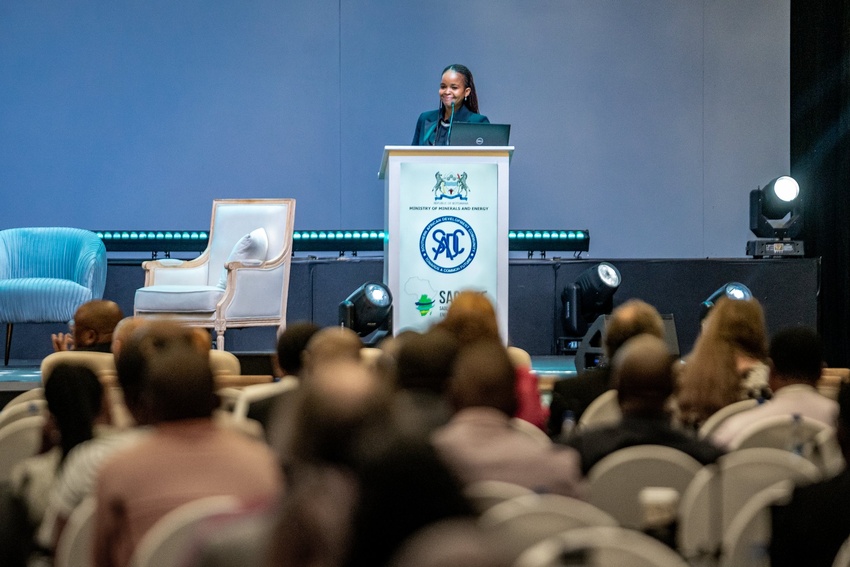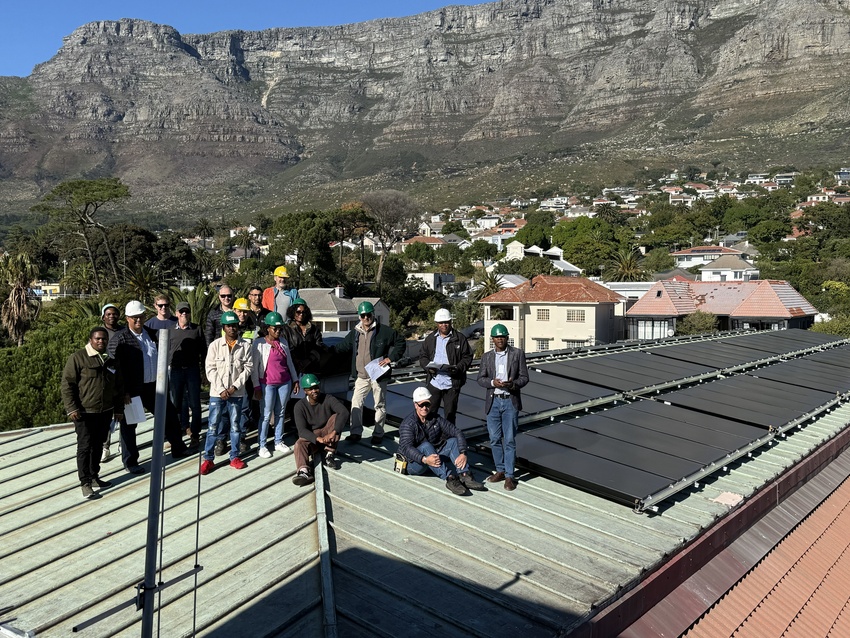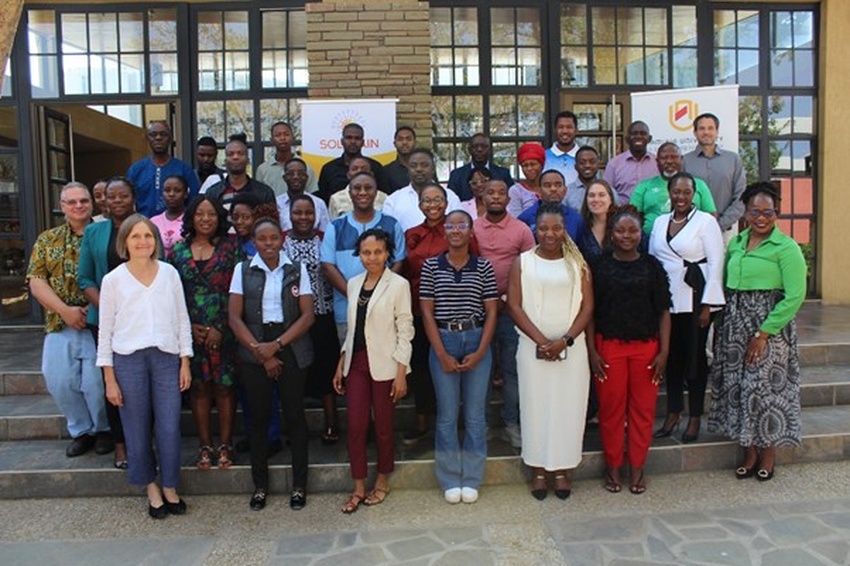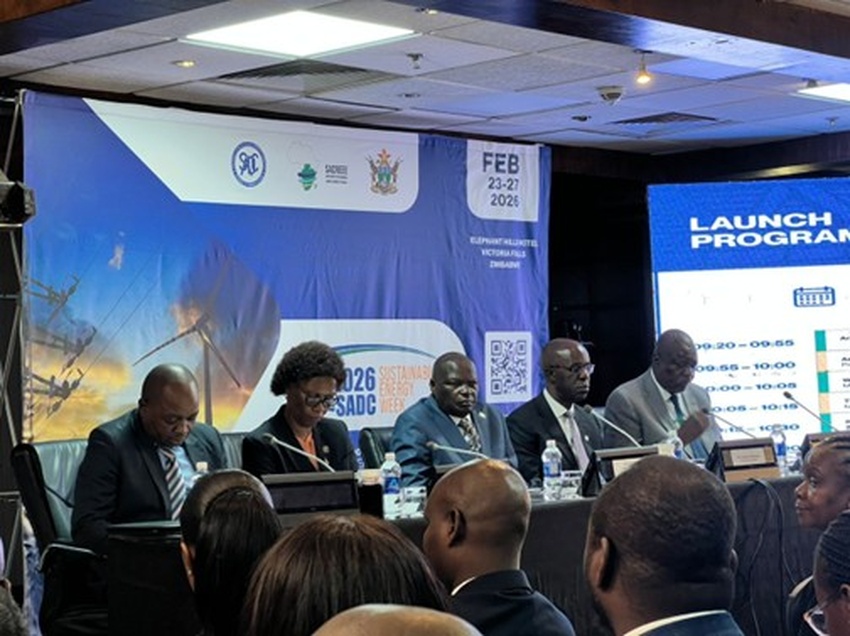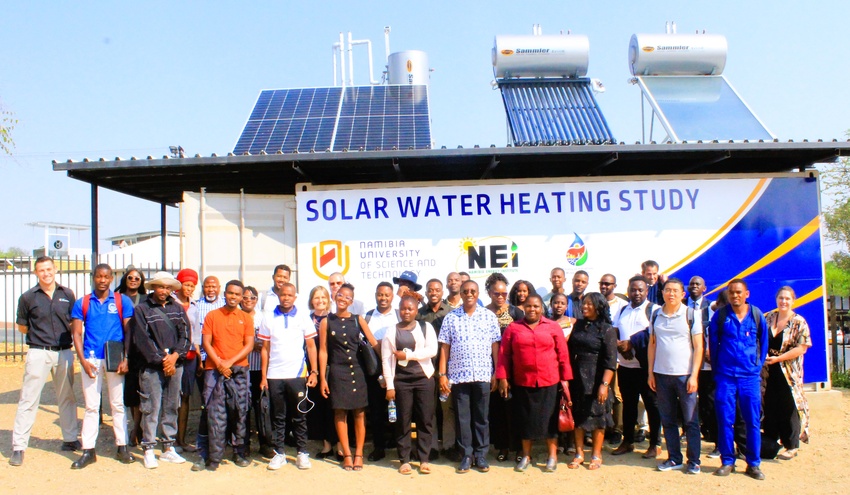As a lecturer for Energy and Industrial Engineering at Botswana University of Science at Technology (BIUST), it was my honour to supervise Mr Modie Orapeleng, who was granted a bursary from SOLTRAIN’s Student Project Support Scheme in 2020, funded by the Austrian Development Agency.
In his Bachelor thesis, Modie conducted research on problem solving and optimisation of a large solar-thermal plant for hot water provision for 1 880 students accommodated on the university’s campus, and the SOLTRAIN funding provided an opportunity for him to further pursue his research interests in solar thermal applications in Botswana and to conduct a study entitled “Potential analysis for solar thermal systems in the health sector”.
Through the scheme, students deepen their technical knowledge and gain a unique opportunity to work in a self-organised manner on a challenging topic, while keeping the deadlines of an international donor. It is also a great opportunity to get acquainted with a Masters-level topic relevant to applied solar thermal science whilst addressing energy and climate challenges in the student’s home country, and it provides a good platform for further studies at the Masters level.
The acquisition of data in a country like Botswana is a challenging endeavour. Published information is often not available online and official permits are needed from the respective Ministries and administration. Such bureaucratic challenges further impacted the field research.
These challenges were also compounded by COVID-19 restrictions, making it extremely difficult and sometimes impossible to visit clinics and hospitals. The closure of the university also interrupted the academic calendar, and Modie had to conduct the study from his home village with limited internet connectivity and related difficulties.
Based on my supervision experience, I would suggest, that future recipients hold a number of online-presentations to a panel consisting of SOLTRAIN partner country representatives, supervisors and bursary recipient peers. These engagements could be timed to coincide with milestones such as intermediate and final reports.
Tighter alignment with academic calendars and a deeper exchange with supervisors around topics might create further capacities with academic staff within the region and could eventually lead to the inclusion of experts within the SOLTRAIN community as external supervisors. Such a process would foster deeper research and collaboration relationships and provide a solid framework for future research opportunities and co-publishing.
The SOLTRAIN project is a wonderful and unique experience for our students, and has the potential to be developed even further. We highly appreciate SOLTRAIN and the support of the whole project team. Ke a leboga! Danke!
